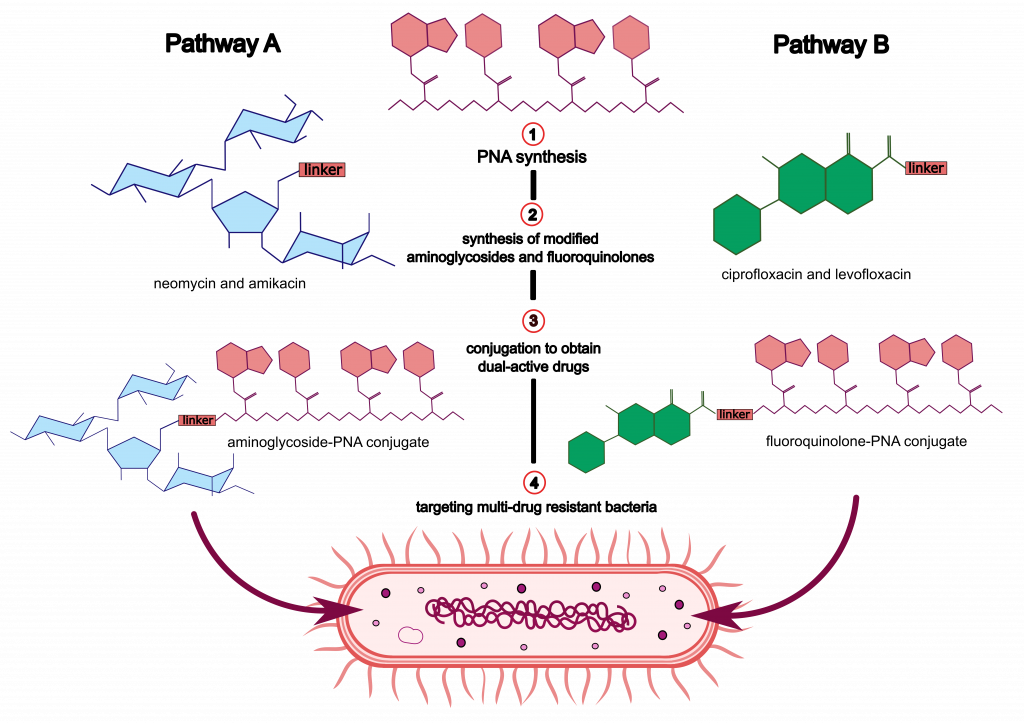
Conjugates of peptide nucleic acids with aminoglycosides and fluoroquinolones as a novel strategy to target multi-drug resistant bacteria
The main goal of this project is the synthesis and biological evaluation of novel antibacterial conjugates as effective agents for drug-resistant pathogens. The proposed strategy combines an antisense approach based on synthetic peptide nucleic acid (PNA) oligomers with known antibiotics representing the classes of aminoglycosides and fluoroquinolones.
The principal hypothesis of this project is that the conjugation of peptide nucleic acids targeting essential bacterial genes with aminoglycosides and fluoroquinolones might lead to new effective antibiotics based on synergistic effects.
Further details can be found HERE
Principal Investigator: mgr Izabela Siekierska, CeNT UW
Project period: 2024 – 2026
Funding: Preludium 22, National Science Centre
![]()
